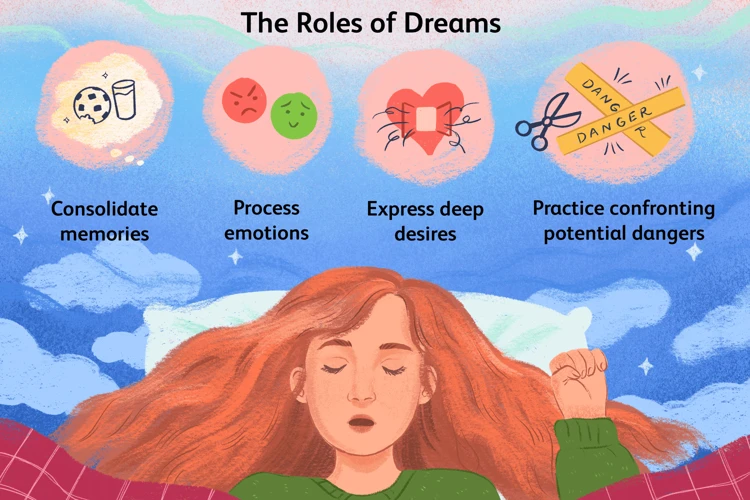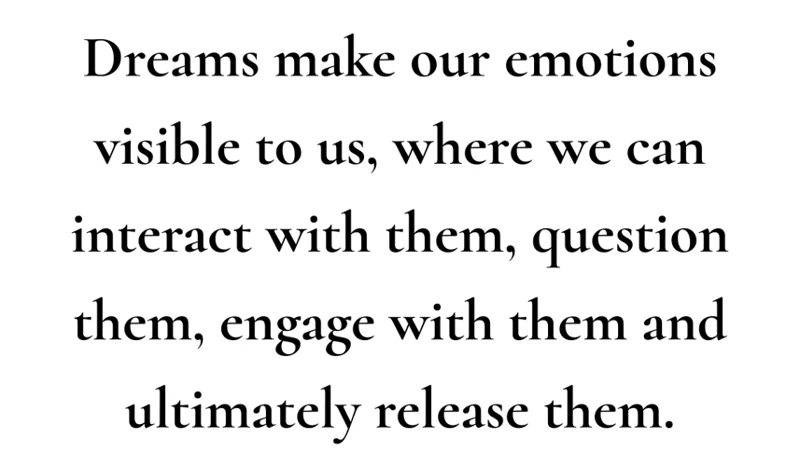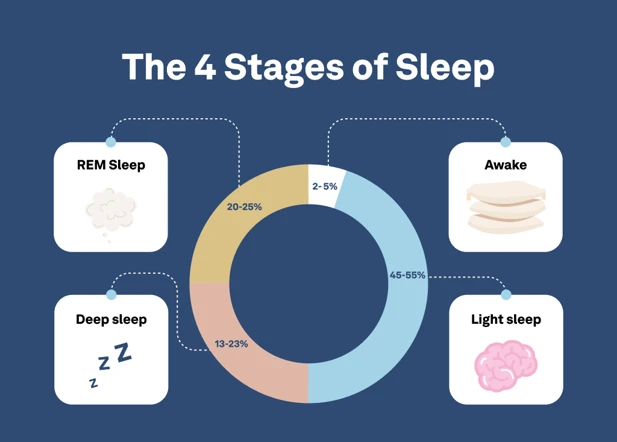Every night, as we close our eyes and drift into a world of dreams, there is a possibility that we may encounter a turbulent and unsettling experience known as a nightmare. These vivid and often distressing dreams have intrigued and puzzled humans for centuries. What purpose do they serve? Are they simply a random assortment of images and emotions, or do they have a deeper meaning? In this article, we will explore the role of nightmares in processing emotions, delve into the science behind these unsettling dreams, and uncover the benefits they can bring to our psychological well-being. So, buckle up and get ready to embark on a journey into the mysterious realm of our subconscious minds.
Understanding Nightmares

Nightmares are a fascinating and enigmatic phenomenon, yet their understanding is crucial for unraveling their deeper meaning. Definition of Nightmares – Nightmares are vivid and disturbing dreams that can elicit intense emotions such as fear, anxiety, and terror. These dreams often awaken the dreamer, leaving them feeling shaken and unsettled. While nightmares can occur at any age, they are most commonly experienced during childhood and adolescence. Common Nightmare Themes – Nightmares can encompass a wide range of themes, but some common ones include falling, being chased or attacked, experiencing natural disasters, and being trapped or unable to move. These recurring themes provide valuable insights into the subconscious fears and anxieties that an individual may be grappling with. Understanding the definition and prevalent themes of nightmares is a crucial step in further exploring their impact on emotional processing.
Definition of Nightmares
Nightmares, as defined, are unsettling dreams characterized by vivid and distressing content. These dreams evoke intense emotions, such as fear, terror, or anxiety, and often result in the individual waking up with a sense of unease and disturbance. Nightmares are a common experience for many individuals, although they tend to be more prevalent in childhood and adolescence. While the specific content of nightmares can vary widely, common nightmare themes include falling, being chased or attacked, encountering natural disasters, and being trapped or paralyzed. These themes provide valuable insights into the underlying fears, anxieties, and conflicts that individuals may be struggling with on a subconscious level. Understanding the definition of nightmares as intense and distressing dreams sets the stage for exploring their role in emotional processing and psychological well-being.
Common Nightmare Themes
Nightmares can vary greatly in their content and imagery, but there are several common themes that tend to recur across cultures and individuals. One prevalent theme is the sensation of falling, which can symbolize a lack of control or stability in one’s life. Being chased or attacked is another common nightmare scenario, reflecting feelings of threat or vulnerability. The experience of natural disasters, such as earthquakes or floods, often represents overwhelming stress or a sense of impending chaos. Another frequent theme is being trapped or unable to move, which may reflect feelings of being stuck or powerless in a particular situation. These recurring themes in nightmares provide valuable clues to the underlying fears and anxieties that individuals may be grappling with. By identifying and exploring these themes, one can gain insight into their emotional state and potentially address unresolved issues that may be manifesting in their dreams. For more information on nightmar
nightmares-children-parents-guide
The Science Behind Nightmares

A deeper understanding of nightmares requires delving into the scientific aspects that underpin these distressing dreams. Brain Activity During Nightmares – Research has shown that nightmares are associated with heightened activity in certain regions of the brain, specifically the amygdala and the insula. These areas are responsible for processing emotions and generating feelings of fear and anxiety. Additionally, during nightmares, the prefrontal cortex, which is responsible for logical and rational thinking, becomes less active, leading to a diminished ability to process and evaluate the content of the dream. Role of REM Sleep in Emotional Regulation – Nightmares primarily occur during rapid eye movement (REM) sleep, a stage of sleep characterized by heightened brain activity and vivid dreaming. REM sleep is believed to play a crucial role in emotional regulation and memory consolidation. When we experience emotional events or trauma, the brain uses REM sleep as a way to process and integrate these experiences, often manifesting as nightmares. Understanding the intricate interplay between brain activity and REM sleep sheds light on the science behind nightmares and their role in emotional processing. For more information on the connection between nightmares and sleep disorders, you can refer to this insightful article here.
Brain Activity During Nightmares
– When we experience nightmares, our brain undergoes unique patterns of activity that distinguish them from regular dreams. Numerous studies have explored this phenomenon using neuroimaging techniques such as functional magnetic resonance imaging (fMRI) and electroencephalography (EEG). These studies have revealed that during nightmares, specific areas of the brain, such as the amygdala and the insula, show increased activation. The amygdala, known for its involvement in processing emotions and fear responses, becomes highly active during nightmares, leading to the intense emotional reactions experienced during these dreams. Additionally, the insula, responsible for integrating sensory information and generating emotional responses, also plays a significant role in nightmare experiences. The prefrontal cortex, which is involved in decision-making, self-awareness, and emotional regulation, exhibits decreased activity during nightmares. This decrease in prefrontal cortex activity may explain why rational thinking and problem-solving are impaired during these dreams, contributing to the feelings of helplessness and vulnerability. Understanding the specific brain activity patterns during nightmares offers valuable insights into the complex mechanisms underlying these intense emotional experiences.
Role of REM Sleep in Emotional Regulation
– Rapid Eye Movement (REM) sleep, characterized by rapid eye movements and increased brain activity, plays a crucial role in emotional regulation during nightmares.
– During REM sleep, the brain actively processes and consolidates emotional experiences from the day, which could explain the intensity of emotions experienced in nightmares.
– REM sleep is associated with increased activity in the amygdala, the brain region responsible for processing emotions, and decreased activity in the prefrontal cortex, which regulates emotional responses.
– This shift in brain activity during REM sleep allows for the emotional content of experiences to be replayed and processed in a safe, controlled environment.
– The release of neurotransmitters during REM sleep, such as norepinephrine and serotonin, further facilitates emotional regulation and the integration of emotional memories.
– Research suggests that disturbances in the REM sleep cycle may contribute to difficulties in emotional regulation and could potentially lead to increased frequency and intensity of nightmares.
– Understanding the role of REM sleep in emotional regulation provides valuable insight into the purpose and significance of nightmares in processing and managing our emotions.
Emotional Processing during Nightmares

Emotional processing during nightmares plays a significant role in understanding their impact on our psychological well-being. Psychological Interpretations of Nightmares – Nightmares have long been regarded as windows into our subconscious mind, allowing us to confront and process our deepest fears and unresolved emotions. They provide a unique opportunity for self-reflection and introspection, as they often symbolize underlying issues and unresolved conflicts. Processing Traumatic Experiences through Nightmares – For individuals who have experienced traumatic events, nightmares can serve as a way of processing and integrating those distressing experiences. The dream scenario allows the individual to re-experience and potentially resolve fragmented emotions and memories associated with the trauma. Through nightmares, the mind attempts to make sense of and heal from these traumatic encounters. Symbolism in Nightmares – Nightmares are rich with symbolism, with various elements and scenarios representing hidden meanings and emotional associations. Analyzing these symbols can provide valuable insights into an individual’s subconscious thoughts, fears, and desires. Understanding the psychological interpretations, processing of traumatic experiences, and symbolism within nightmares are all essential aspects of comprehending the role they play in emotional processing.
Psychological Interpretations of Nightmares
Nightmares have long captivated the interest of psychologists, who have offered various interpretations to decipher their psychological significance. A renowned theory suggests that nightmares serve as a mechanism for processing and integrating distressing emotions. According to this perspective, nightmares allow individuals to confront and explore their deepest fears in a safe dream environment. This emotional catharsis can aid in releasing pent-up anxiety and tension that may have been suppressed during waking hours. Another psychological interpretation proposes that nightmares act as a form of self-defense, preparing individuals to cope with potential threats they may encounter in the future. By experiencing frightening scenarios during nightmares, the dreamer becomes better equipped to handle similar situations in waking life. This interpretation aligns with the concept of nightmares as a survival mechanism, promoting adaptive responses to potential dangers. Additionally, some psychologists believe that nightmares offer symbolic representations of unresolved conflicts or traumas. These symbolic images provide clues to the underlying psychological issues that an individual may be grappling with. Exploring and interpreting the symbolism within nightmares can help individuals gain insights into their subconscious thoughts and emotions, leading to personal growth and healing. The various psychological interpretations of nightmares highlight their potential as a tool for emotional processing and self-exploration.
Processing Traumatic Experiences through Nightmares
Nightmares play a significant role in processing traumatic experiences, offering a unique and profound avenue for emotional healing. When we go through a traumatic event, our minds may struggle to fully process and make sense of the intense emotions and distressing memories associated with it. This unresolved trauma can manifest in various ways, such as intrusive thoughts, anxiety, and sleep disturbances. However, nightmares serve as a powerful mechanism for processing and integrating these traumatic experiences. During nightmares, our unconscious mind takes center stage, creating a vivid and often symbolic narrative that allows us to confront and process the emotions and memories related to the trauma. This cathartic process provides an opportunity for the mind to release pent-up emotions, gain insight into the experience, and ultimately facilitate emotional healing. While nightmares can be distressing, they can also act as a natural therapeutic tool for individuals struggling with trauma, allowing them to gradually make sense of their experiences and move towards recovery. If you’d like to learn more about the connection between nightmares and trauma, you can read our article on “Nightmares and Sleep Disorders: Exploring the Connection“.
Symbolism in Nightmares
Symbolism plays a significant role in nightmares, serving as a bridge between the subconscious mind and conscious emotions. During a nightmare, our minds utilize symbols to represent underlying emotions, experiences, and conflicts that we may not be consciously aware of. These symbols can be deeply personal, arising from our unique experiences, cultural background, and beliefs. For example, being chased in a nightmare could symbolize a feeling of being pursued or overwhelmed by a problem or fear in waking life. The symbolism in nightmares can be highly subjective, and the same symbol may have different meanings for different individuals. Dream analysts and psychologists often explore the personal symbolism in nightmares to uncover hidden emotions and unresolved issues. By understanding and interpreting the symbolism in nightmares, individuals can gain insights into their own psyche and work towards resolving emotional conflicts in their waking life. It is important to approach symbolism in nightmares with an open mind, recognizing the personal nature of the symbols and the potential for symbolic meanings to change over time or in different contexts. Embracing and exploring the symbolism in nightmares can provide valuable clues for emotional healing and personal growth.
Benefits of Nightmares

While nightmares may be distressing and unsettling, they can actually provide several benefits for our emotional well-being. Facilitating Emotional Release – Nightmares often involve intense emotions, such as fear, anger, and sadness. By experiencing these emotions in a safe dream environment, we have the opportunity to release pent-up emotions and process them in a cathartic manner. This emotional release can help reduce stress and anxiety in our waking lives. Additionally, nightmares can serve as a outlet for repressed or suppressed emotions, allowing us to confront and address deep-seated issues. Preparing for Future Challenges – Nightmares can also act as a form of rehearsal for real-life challenges and dangers. As we navigate through frightening scenarios in our dreams, our brain and body learn to respond and cope with these situations. This subconscious rehearsal can enhance our ability to face and manage stressful or threatening situations in our waking lives. Recognizing the potential benefits of nightmares can help us reframe our perspective on these unsettling dreams and view them as opportunities for growth and emotional processing.
Facilitating Emotional Release
Facilitating Emotional Release
One of the remarkable benefits of nightmares is their ability to facilitate emotional release. When we have intense emotions bottled up inside us, whether it be fear, anger, or sadness, nightmares can provide a safe space for these emotions to be expressed and processed. During a nightmare, our minds are free to explore the depths of our fears and anxieties, allowing us to face them head-on. This process can lead to a cathartic release of pent-up emotions, providing a sense of relief and emotional cleansing. Nightmares essentially act as a pressure valve, allowing us to confront and work through our deepest emotional struggles in the realm of dreams. By acknowledging and processing these emotions, we can work towards a healthier and more balanced emotional state in our waking lives. It is important to note that while nightmares can be unsettling, they ultimately serve as a mechanism for emotional healing and growth.
Preparing for Future Challenges
Nightmares, while distressing in the present moment, can serve a valuable purpose in preparing individuals for future challenges. – One of the key benefits of nightmares is their ability to simulate and expose individuals to potential threats and dangers. When we experience nightmares, our brains are subconsciously rehearsing responses to critical situations, stimulating emotional and physical reactions. These dream scenarios may involve confronting fears, escaping dangerous situations, or finding solutions to complex problems. By repeatedly engaging in these simulated scenarios, our brains become more adept at responding effectively in real-life situations. This process can enhance our problem-solving abilities, improve decision-making skills, and increase our overall resilience. Nightmares, in a way, act as a training ground for our minds, helping us develop the mental fortitude needed to overcome future challenges.
Ways to Cope with Nightmares
When faced with the distressing experience of nightmares, it is important to develop effective coping strategies. Here are some ways to cope with nightmares:
- Creating a Safe Sleep Environment: Establish a soothing bedtime routine, ensure a comfortable sleep environment, and minimize exposure to stimulating activities before bedtime.
- Developing Relaxation Techniques: Practice relaxation techniques such as deep breathing, meditation, or progressive muscle relaxation to calm the mind and promote a sense of tranquility before sleep.
- Seeking Professional Help: If nightmares persist and significantly affect daily life, consider seeking help from a mental health professional who can provide guidance, support, and additional coping strategies.
By implementing these coping mechanisms, individuals can feel empowered to navigate the distressing realm of nightmares and work towards a more peaceful and restful sleep.
Creating a Safe Sleep Environment
Creating a safe sleep environment is essential for promoting restful sleep and minimizing the occurrence of nightmares. Here are some key strategies to consider:
- Establish a Bedtime Routine: Implementing a consistent bedtime routine can signal to the body and mind that it is time to relax and prepare for sleep. Engage in calming activities such as reading a book, taking a warm bath, or practicing relaxation techniques.
- Create a Comfortable Bedroom: Ensure that your bedroom is a peaceful and comfortable space conducive to sleep. Keep the room cool, dark, and quiet. Use comfortable bedding and pillows that promote relaxation and provide proper support.
- Avoid Stimulants: Limit the intake of stimulants such as caffeine and nicotine, especially close to bedtime. These substances can interfere with the quality of sleep and increase the likelihood of experiencing nightmares.
- Reduce Screen Time: Avoid using electronic devices, such as smartphones, tablets, or TVs, before bed. The blue light emitted by these devices can disrupt the body’s natural sleep-wake cycle and hinder the ability to fall asleep peacefully.
- Address Stress and Anxiety: Engage in stress-reducing activities before bed, such as practicing relaxation techniques, journaling, or engaging in mindfulness exercises. Managing stress and anxiety can contribute to a more peaceful sleep environment.
By implementing these strategies, individuals can create a safe and soothing sleep environment that promotes restorative sleep and reduces the likelihood of experiencing distressing nightmares.
Developing Relaxation Techniques
When it comes to coping with nightmares, developing relaxation techniques can be incredibly beneficial. Relaxation techniques help calm the mind and body, creating a sense of peace and tranquility that can counteract the fear and anxiety experienced during nightmares. Deep Breathing: Deep breathing exercises, such as diaphragmatic breathing, can help regulate your breathing and induce a state of relaxation. Focus on inhaling deeply through your nose, allowing your belly to rise, and then exhaling slowly through your mouth, allowing your belly to fall. Muscle Relaxation: Progressive muscle relaxation involves tensing and then releasing different muscle groups, promoting a release of tension and promoting a sense of relaxation throughout the body. Start by tensing your muscles in your feet, hold for a few seconds, and then release. Gradually work your way up through your body, tensing and releasing each muscle group. Meditation: Regular meditation practice can help calm the mind and reduce anxiety. Find a quiet and comfortable space, close your eyes, and focus your attention on your breath or a specific mantra or visualization. Allow any thoughts or emotions to come and go without judgment. Consistent practice can improve your ability to relax and manage stress. Guided Imagery: Guided imagery involves using your imagination to create a calming and peaceful mental image. It can be helpful to visualize yourself in a serene and safe environment, such as a beach or a peaceful garden. Engaging multiple senses, such as imagining the sound of ocean waves or the scent of flowers, can enhance the relaxation response. By incorporating these relaxation techniques into your daily routine, you can develop a sense of inner calm and resilience that can provide solace and offer relief from the distressing emotions associated with nightmares.
Seeking Professional Help
When nightmares become recurrent and severely impact an individual’s quality of life, seeking professional help can be a vital step towards finding relief. Here are some ways in which professionals can assist in managing and resolving nightmares:
1. Therapy sessions: Psychotherapists, such as cognitive-behavioral therapists or psychologists, can help individuals explore the root causes of their nightmares and develop effective coping strategies. Through therapy sessions, individuals can gain insights into the underlying emotions and experiences that contribute to their nightmares and work towards resolving them.
2. Trauma-focused therapy: Individuals who have experienced traumatic events may benefit from trauma-focused therapy, such as eye movement desensitization and reprocessing (EMDR) or exposure therapy. These therapies aim to process and desensitize the traumatic memories associated with nightmares, ultimately reducing their frequency and intensity.
3. Medication: In some cases, medication may be prescribed to manage nightmares, particularly if they are associated with underlying mental health conditions such as post-traumatic stress disorder (PTSD). Medications such as selective serotonin reuptake inhibitors (SSRIs) or prazosin may be prescribed to alleviate nightmares and improve overall sleep quality.
4. Sleep studies: For individuals with severe and persistent nightmares, sleep studies conducted in sleep clinics can provide valuable insights into their sleep patterns and identify any potential underlying sleep disorders. This information can guide the development of personalized treatment plans.
5. Hypnosis: Some individuals find relief from nightmares through hypnosis, a therapeutic technique that helps access the subconscious mind and address underlying psychological factors contributing to nightmares.
It is essential to consult with a qualified mental health professional to determine the most suitable course of action based on individual circumstances. Seeking professional help can provide the necessary guidance and support needed to effectively manage and alleviate the distress caused by nightmares.
Conclusion
The conclusion of our exploration into the role of nightmares in processing emotions reveals the intricate and multifaceted nature of these unsettling dreams. While nightmares can be distressing, they serve an important purpose in our emotional well-being. Through their vivid and sometimes terrifying imagery, nightmares help to facilitate emotional release, allowing us to process and confront our fears and anxieties in a safe environment. Additionally, nightmares can also serve as a preparation mechanism, enabling us to anticipate and cope better with future challenges. However, it is crucial to note that if nightmares become chronic or significantly impact our daily lives, seeking professional help is essential. With the right tools and coping strategies, nightmares can be managed effectively, allowing us to harness their potential benefits and enhance our emotional resilience. So, the next time a nightmare sends shivers down your spine, remember that it is an opportunity for growth and self-reflection, ultimately leading to a deeper understanding and processing of our complex emotions.
Frequently Asked Questions
Why do we have nightmares?
Nightmares serve as a way for our subconscious minds to process and deal with intense emotions, fears, and anxieties that we may have experienced or repressed.
Are nightmares a sign of mental illness?
Not necessarily. Nightmares are a normal part of the dream cycle and can occur in both mentally healthy individuals and those with mental health conditions.
Can medications cause nightmares?
Yes, certain medications, such as antidepressants and blood pressure medications, can be associated with an increase in vivid and intense dreams, including nightmares.
Do nightmares have any benefits?
Yes, nightmares can actually have benefits. They can act as a release valve for pent-up emotions, provide insights into our fears and anxieties, and even help us prepare for future challenges.
Are nightmares more common in children?
Yes, nightmares are more common in children and tend to decrease in frequency as we grow older. This is because children’s imaginations are more active, and they may have more difficulties processing their emotions.
Can nightmares be caused by trauma?
Yes, nightmares are often associated with traumatic experiences. These dreams can serve as a way for the mind to process and attempt to make sense of the trauma that has been experienced.
What should I do if I have frequent nightmares?
If you are experiencing frequent nightmares that are causing distress or affecting your quality of sleep, it may be helpful to seek support from a mental health professional who can provide guidance and help you develop coping strategies.
Can nightmares be prevented?
While it may not be possible to completely prevent nightmares, creating a calming and safe sleep environment, managing stress levels, and practicing relaxation techniques before bed can help reduce their frequency.
Is there a connection between nightmares and sleep disorders?
Yes, nightmares can be associated with sleep disorders such as sleep apnea, insomnia, and REM sleep behavior disorder. These conditions disrupt the sleep cycle and can contribute to the occurrence of nightmares.
Are nightmares influenced by what we watch before bed?
Yes, the content we consume before bed, such as scary movies or intense television shows, can influence the content of our dreams and potentially increase the likelihood of experiencing nightmares.








